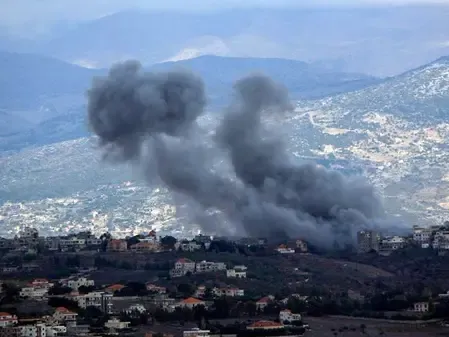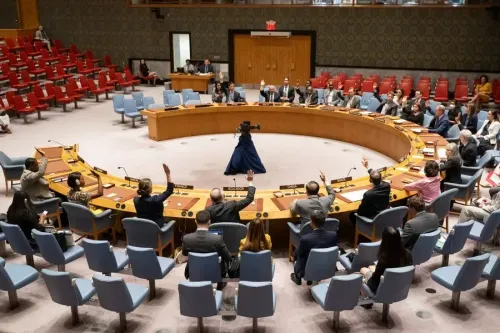Could Alleged Pakistani Air Strikes End the Fragile Truce with Afghanistan?

Synopsis
Key Takeaways
- Pakistan's airstrikes may jeopardize the fragile ceasefire with Afghanistan.
- The recent conflict has halted trade across the Durand Line.
- Previous retaliatory actions have escalated tensions further.
- Efforts at mediation by Qatar and Turkey have not resulted in a lasting peace agreement.
- Civilian casualties reported raise humanitarian concerns.
New Delhi, Nov 25 (NationPress) Pakistan's cross-border airstrikes into eastern Afghanistan during the night of November 24-25 could potentially disrupt the fragile ceasefire that is currently lacking clear modalities.
A previous bombardment had already prompted Afghan Taliban fighters to retaliate with a cross-border attack on Pakistan's border posts on October 11, which halted all trade and transit activities across the unstable Durand Line.
Growing tensions have resulted in several clashes along this disputed line, causing intermittent border closures and significantly impacting trade for landlocked Afghanistan.
Since November 12, trade has been suspended at the Afghanistan-Pakistan border, leading Kabul to urge its business community to explore alternative routes.
Efforts by regional mediators have briefly succeeded in establishing a ceasefire agreement between Kabul and Islamabad, but a consensus on the specific terms for lasting peace has remained elusive, even after two meetings.
Subsequent discussions in Istanbul failed to finalize the implementation clauses for the Doha agreement of October 18-19.
While Qatar and Turkey have mediated the talks, neighboring countries, including Iran, have also expressed interest in facilitating a truce.
Islamabad has repeatedly accused Kabul of harboring the Tehreek-e-Taliban Pakistan (TTP) and enabling cross-border assaults on Pakistan.
In contrast, Kabul denies these accusations, asserting that Pakistan has violated its territorial integrity, resulting in the displacement of thousands of Afghan refugees.
On Tuesday, the Taliban reported that Pakistan's airstrikes in districts of Khost, Kunar, and Paktika provinces resulted in the deaths of at least 10 civilians, including nine children and one woman.
The strikes reportedly targeted a civilian residence in the Mughalgai district of Khost, leading to significant damage and civilian casualties. Additional strikes in border areas of Kunar and Paktika also resulted in injuries to several civilians.
Local accounts and Taliban reports indicate that the Khost attack occurred around midnight, specifically hitting a residential compound.
Some reports suggest this action was a retaliation by Pakistan following a suicide bombing in Peshawar that targeted a paramilitary compound, resulting in the deaths of multiple officers.
The immediate response included public outrage from Afghan officials and a Taliban promise to retaliate, escalating concerns about further conflict along the porous border.
The spokesperson for the Afghan government, Zabihullah Mujahid, stated to local media that during the midnight raids, "Pakistani invading forces bombed the home of a civilian in the Mughulgai area of Khost's Gurbuz district, killing nine children (five boys and four girls) and one woman, while also destroying the house. Airstrikes were also conducted in Kunar and Paktika, injuring four civilians."
Former Afghan President Hamid Karzai condemned the airstrikes, urging Pakistan to cease such hostile actions, as reported by Tolo News.
Former U.S. Special Representative for Afghan Reconciliation, Zalmay Khalilzad, also expressed condolences to the victims' families and condemned the attacks, stating that harming civilians is never a viable solution.









